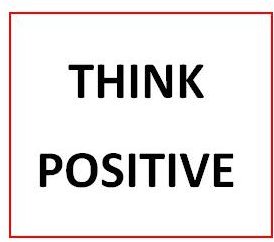Maintaining a Healthy Weight Is Essential: Tips For Keeping Heart, Lungs, and Joints Fit As Fiddles
Too Much to Risk
Maintaining a healthy weight is of utmost importance to the proper functionality of some of your most important organs such as the heart and lungs. That commitment to a trim, fit body will pay dividends in avoiding injuries as the result of too much weight and pressure on the joints, especially in your legs. Moreover, although you might think that carrying around extra weight is doing any damage in the present, over time; with no regular exercise and additional weight gain, you increase the risk of diseases, ailments, and conditions which could have otherwise been avoided.
Deterioration of the heart and lungs can seriously hamper the physical and mental well-being of a person, and in the worst cases, even lead to an early demise. Because weight trouble can be inextricably intertwined with less self-esteem and confidence that is yet another prevailing reason to work off those pounds. You end up feeling better about yourself, with a better outlook in life, and more energy for everything you do. Without a commitment to a trim body through exercise and diet, you increase your chances of falling prey to heart diseases, high blood pressure, breathing trouble, and diabetes. All of that is explained with more detail in The Health Benefits of Physical Fitness. Avoiding or controlling those incidences is your responsibility.
The Importance of Proper Energy Balance for Weight Control
By overweight, we mean possessing superfluous weight in the muscles, bones, and fatty tissues. Possess is a good word to use, because just like anything else harmful or unsavory, you don’t have to keep it if you don’t want to. Factors that contribute to being overweight include environment, genetics, family history, behavior/habits, and metabolism; which means how your particular body changes food and oxygen into energy. So indeed, some people have a much tougher time keeping weight off and therefore have to work harder at. It’s a matter of acceptance and playing the hand that you were dealt. Need help getting inspired to help you with these life-changing fitness and diet endeavors? How to Get Motivated to Lose the Wieght for Good provides and encouragement and sound advice to help you get started.
Proper energy balance is therefore a key to bringing about a healthy weight. The calories and energy you receive from taking in food and drinks is offset by the energy your body needs to use for vital functions like breathing, digesting, pumping blood, and operating that body of yours (whether for normal functioning throughout the day or with specific exercise programs). So if that energy in is the same as energy out you will maintain the same weight. If you’re taking in more energy in than what you put out, you’ll gain weight. But if your body is producing more energy for all those necessary bodily functions than you’re taking in with food, you’ll lose weight.
How to Work off and Keep off Those Extra Pounds

In a nut shell, monitoring that energy transfer is how you’ll get to a healthy weight and maintain it, so it’s all about achieving the right flow of energy. It’s akin to the physics principle states that a body in motion stays in motion. When you stop moving, harmful toxins, fatty tissues, calcium deposits, and triglycerides build up, and the extra weight becomes harder to work off. To jump start the process, perhaps you should try the large calorie-burning practice of bikram yoga. But on our site you’ll find good information and instructions about a full gamut of exercise programs to help you burn off calories. Just type in what regimen, class, sport, or activity that interest you and you’re bound to find an article or two that gives some in-depth analysis. From biking to salsa, we’ve got you covered.
To maintain a healthy weight, you need not balance out exactly each day, but shooting for that consistency and hitting the target generally will help you achieve your goals over time, which is a reward in itself. Calorie counting is essential, along with monitoring your heart rate which you need to know while exercising because you use that number and your age to figure out how many calories you’re burning off. If you’re overweight, gradually reduce the amount of calories you’re taking in to about 500 less while increasing your cardiovascular exercise (vital to avoiding respiratory and breathing problems) to about 45 minutes three or four times a week, while engaging in strength training on the in-between days. How to Calculate the Number of Calories Burned during Exercise will show you exactly how to figure all this with a large variety of different exercises.
With all the information presented above, along with the quick and salient links to other articles, you now possess the keys to understanding the importance of maintaining a healthy weight and how you should go about doing it. Your body is essentially your oldest friend. Treat it wisely and you will experience a more fulfilling and vigorous life, seeing everything that comes about with a fit and hearty perspective. The view from the top of that proverbial mountain top of a commitment to a healthy weight is a fine view indeed.
Sources:
National Heart Lung and Blood Institute: National Institute of Health: https://www.nhlbi.nih.gov/health/public/heart/obesity/lose_wt/index.htm
WEB MD: https://www.webmd.com/fitness-exercise/benefits-of-exercise
American Heart Association: Americanheart.org
MayoClinic.com
